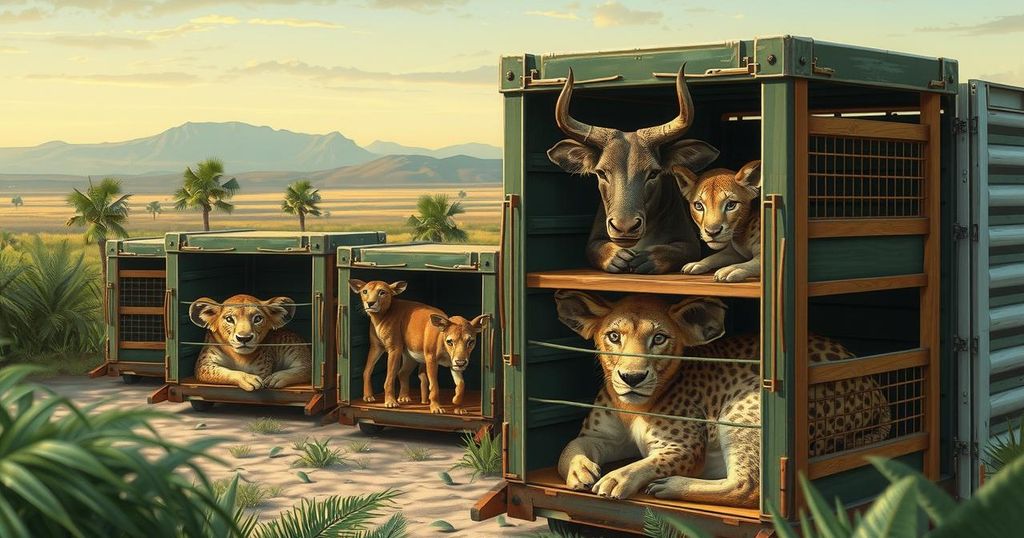The Wildlife Animal Protection Forum of South Africa has condemned the export of numerous wild animals to Vantara, a new facility owned by Anant Ambani. Concerns focus on the climate’s suitability for the animals, the ethical implications of captivity, and the lack of proper investigations into the transfers. WAPFSA calls for thorough oversight and an independent inquiry regarding animal welfare.
The Wildlife Animal Protection Forum of South Africa (WAPFSA) has raised concerns regarding the export of numerous wild animals, including leopards, cheetahs, tigers, and lions, to the Greens Zoological, Rescue and Rehabilitation Centre (GZRRC), also referred to as Vantara. This facility is owned by Mukesh Ambani’s son, Anant, and was inaugurated on March 3, 2024, coinciding with World Wildlife Day.
Experts have expressed doubts about Vantara’s suitability for housing various species due to Gujarat’s hot climate, which may not be ideal for many of the imported animals. WAPFSA formally communicated these concerns in a letter dated March 6 to multiple authorities, including the Department of Forestry, Fisheries and the Environment (DFFE) and the CITES Secretariat.
According to the GZRRC’s 2023/2024 Annual Report, 56 cheetahs have specifically been sent to Vantara from South Africa. In their letter, WAPFSA articulated their concerns about the lack of thorough assessments regarding these exports, questioning the origins of the 56 cheetahs. The report additionally documented other exported species, such as aardvarks, caracals, and tigers, among others.
WAPFSA highlighted that lions and tigers appear to have been acquired from breeding facilities in South Africa. While they may experience improved conditions at Vantara, the organization is worried about the potential transformation of these animals into breeding machines in external nurseries. They have called for an independent scientific investigation to oversee the welfare of the animals involved.
WAPFSA stated that “most wildlife experts agree that placing animals in any captive environment is itself a form of mistreatment. A life in captivity in a zoo, no matter how advanced the zoo facilities may be, can never equal a life lived in natural surroundings,” emphasizing the ethical implications of captivity for wild species.
In conclusion, the export of wild animals from South Africa to Vantara raises serious ethical concerns regarding animal welfare and habitat suitability. WAPFSA’s call for an independent investigation underscores the importance of ensuring that such facilities prioritize the well-being of the animals in their care. The ongoing debate highlights the necessity of further examination into wildlife management practices, particularly regarding captive breeding and environmental considerations.
Original Source: www.financialexpress.com






